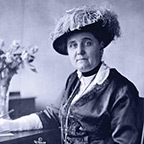In 1983 two important organizations were created: the West Philadelphia Partnership, a 501(c)(3), and the Office of Community-Oriented Policy Studies at Penn, the predecessor to the Penn Program for Public Service in the School of Arts and Sciences (established in 1988). Then, in 1985, the seeds for academically based community services courses were planted when four undergraduate students proposed a summer job training corps for their honors seminar class at Penn. The project, known as the West Philadelphia Improvement Corps (WEPIC), became an after-school program at a local elementary school. Over the next five years, WEPIC grew, evolved and thrived, and the idea of the university-assisted community school was born.
In 1992, with these initiatives indicating the potential for success, the university announced a commitment to focus its resources and energy on the revitalization of West Philadelphia. The Center for Community Partnerships was formed to direct this large and important effort. The Center’s work has created a new vision for university-community relations. Each semester hundreds of undergraduate and graduate students go into West Philadelphia to teach and to learn. Working with faculty, they tackle critical community issues around the environment, health, the arts and education. Enduring democratic collaborations, now in place with public schools, community organizations and communities of faith, are generating new areas for mutual efforts.
In 2007, the Center was renamed the Barbara and Edward Netter Center for Community Partnerships in recognition of an extraordinarily generous commitment from Barbara Netter, Penn Parent (’83), and her late husband Edward Netter, Penn Alumnus (C’53) and Parent (’83).
A timeline of major milestones in the Netter Center's history can be viewed at the link below.


